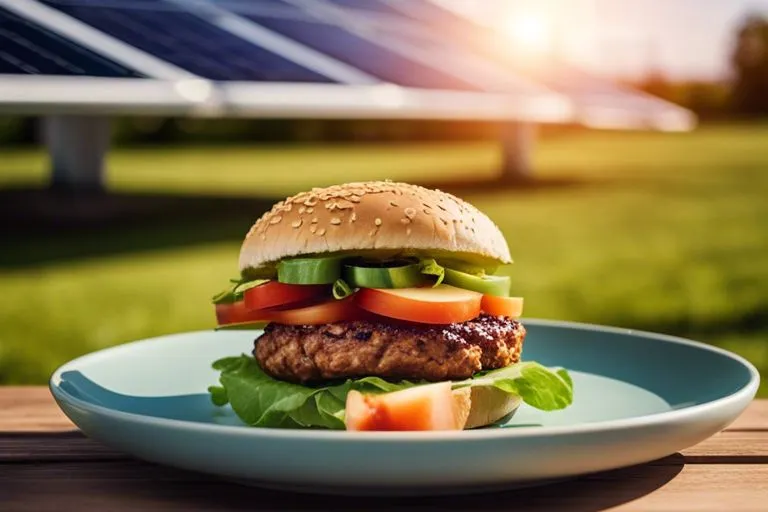Can the Keto Diet be Sustainable and Environmentally Friendly?

Salutations, fellow health enthusiasts! Have you ever wondered if your beloved keto diet could actually be sustainable and environmentally friendly? As you dive into the world of low-carb, high-fat diets, it's important to consider the impact of your food choices on the planet. In this blog post, we'll explore the potential environmental implications of the keto diet, and discuss how you can make sustainable choices while following this popular eating plan. It's time to take a closer look at the impact of keto on the environment and discover how you can make a positive difference through your dietary choices!
Key Takeaways:
- Flexibility is key: The keto diet can be sustainable and environmentally friendly if individuals prioritize seasonal, locally sourced, and plant-based keto-friendly foods. This approach allows for a diverse and sustainable diet while minimizing the environmental impact.
- Mindful consumption: Adhering to a keto diet reinforces mindful consumption as it encourages individuals to focus on quality over quantity. This can lead to reduced food waste and a more sustainable approach to eating.
- Conscious sourcing: Opting for ethically and sustainably sourced animal products and supporting eco-friendly farming practices can further align the keto diet with environmental sustainability. Conscious sourcing helps reduce the carbon footprint and supports responsible food production.
Unpacking the Keto Diet
Obviously, the keto diet has gained a lot of popularity in recent years. It is a low-carb, high-fat diet that has been shown to help with weight loss, as well as providing other potential health benefits. But what exactly does it involve and how does it work? Let's take a closer look at the keto diet to understand its ins and outs.
Keto Basics: What You Need to Know
When you follow a keto diet, you significantly reduce your carbohydrate intake and replace it with fat. This reduction in carbs puts your body into a metabolic state called ketosis, where it burns fat for fuel instead of glucose. This can lead to rapid weight loss and improved energy levels for many people. However, it's important to note that this diet may not be suitable for everyone, especially those with certain medical conditions or specific dietary requirements. It’s best to consult with a healthcare professional before making significant changes to your diet.
The Ingredients of a Keto-Friendly Plate
On a keto diet, the typical plate is filled with healthy fats, such as avocados, nuts, seeds, and olive oil. You also have room for low-carb vegetables like spinach, kale, and broccoli. However, you will need to limit starchy vegetables, fruits, grains, and sugars to keep your carbohydrate intake low. The focus is on high-quality, unprocessed foods that are rich in nutrients and fiber.
The Keto Diet and Sustainability
While the keto diet has gained popularity for its potential health benefits, you may be wondering about its impact on the environment and whether it can be a sustainable dietary choice. Let’s explore how the keto diet can align with environmental sustainability and what factors to consider when following this diet.
Farm to Table: Sourcing Keto Ingredients
When following the keto diet, you may find yourself consuming a significant amount of animal products and healthy fats. It’s important to consider the sourcing of these ingredients to ensure they are produced in an environmentally friendly and sustainable manner. Choosing locally sourced and organic produce and pasture-raised animals can make a positive impact on the environment and support sustainable farming practices. By opting for products that are free from pesticides and antibiotics, you can reduce your carbon footprint and support ethical farming methods.
The Carbon Footprint of a Keto Meal
When it comes to the environmental impact of the keto diet, it’s crucial to consider the carbon footprint of the meals you consume. Animal products, particularly red meat, have been linked to higher greenhouse gas emissions than plant-based foods. While animal proteins are a central component of the keto diet, you can make eco-conscious choices by selecting leaner cuts of meat and incorporating plant-based proteins to reduce the environmental impact of your meals. Additionally, being mindful of portion sizes and reducing food waste can further minimize the carbon footprint of your keto diet.
The Keto Diet and Environmental Impacts
Now, let's take a closer look at the environmental impacts of the keto diet. Understanding how your food choices affect the planet can help you make more sustainable decisions when following a ketogenic lifestyle.
Meat Production and Land Use
When following the keto diet, animal products such as meat, poultry, and dairy are often consumed in high quantities. The production of these animal products has a significant impact on the environment. Livestock production is a major contributor to greenhouse gas emissions, deforestation, and water pollution. Additionally, raising animals for food requires a large amount of land, leading to habitat destruction and loss of biodiversity. If you choose to include animal products in your keto diet, it's important to consider the environmental implications and source your meat and dairy from sustainable, ethical producers.
Plant-Based Alternatives within Keto
While the keto diet is often associated with high meat and dairy consumption, there are also plant-based alternatives that can be included in your meals. Opting for plant-based protein sources such as tofu, tempeh, and seitan can help reduce the environmental impact of your diet. These plant-based alternatives require fewer resources to produce and result in lower greenhouse gas emissions compared to animal products. Incorporating more plant-based foods into your keto diet can help lessen the strain on the environment while still allowing you to meet your nutritional needs.
Making Keto Greener
For many people, the thought of following a keto diet can bring to mind plates full of meat, eggs, and dairy - all of which have significant environmental impacts. However, there are ways to make your keto diet more environmentally friendly without sacrificing its benefits. By making some conscious choices and incorporating ecofriendly practices into your keto lifestyle, you can help reduce your carbon footprint and promote sustainability in the food industry.
Tips for Eco-Conscious Keto Eating
When following a keto diet, you can make eco-conscious choices by focusing on plant-based fats and proteins. Opt for avocados, nuts, and seeds as your primary sources of fat, and enjoy vegetarian or vegan keto-friendly meals several times a week. When choosing animal products, look for grass-fed, pasture-raised, and sustainably sourced options to support environmentally responsible farming practices. Consider shopping at your local farmer's market or joining a community-supported agriculture (CSA) program to reduce the environmental impact of transporting food long distances. Reducing waste is also essential for a sustainable keto diet, so consider buying in bulk, cooking meals in advance, and composting food scraps.
Knowing that you are making eco-conscious choices can make your keto diet more rewarding and sustainable for the long term.
Innovations and Future Outlook
As the demand for sustainable food options continues to grow, there is an increasing number of innovations in the food industry that support eco-friendly keto eating. From plant-based meat alternatives to sustainable packaging solutions, companies are working to reduce the environmental impact of keto-friendly products.
Additionally, ongoing research into alternative protein sources and environmentally friendly farming methods holds great promise for the future of sustainable keto diets. By staying informed about these developments and supporting companies that prioritize environmental sustainability, you can contribute to a more sustainable future for the keto community and the planet as a whole.
Can the Keto Diet be Sustainable and Environmentally Friendly?
Presently, you may have concerns about the sustainability and environmental impact of the keto diet, but it's important to remember that it's all about balance and making conscious choices. While it's true that a high intake of animal products in a keto diet can have an impact on the environment, you can still make it sustainable by choosing locally sourced and organic products whenever possible.
Additionally, by focusing on a variety of low-carb and plant-based foods, you can reduce your carbon footprint and support sustainable agriculture. For more information on the topic, you can check out this article on Keto and Climate Change: Is a Low Carb Diet Bad for the ....
FAQ
Q: Is the Keto Diet Sustainable for the Environment?
A: The Keto Diet can be sustainable for the environment if followed responsibly. By focusing on locally sourced, organic, and sustainable foods, you can minimize the environmental impact of the Keto Diet.
Q: Can I Follow a Keto Diet and Still Support Sustainable Agriculture?
A: Absolutely! Choosing grass-fed and pasture-raised animal products, organic produce, and sustainable seafood supports sustainable agriculture while following the Keto Diet.
Q: How Can I Reduce Food Waste on the Keto Diet?
A: Planning your meals, using all parts of the animal or plant, and properly storing and preserving food can help reduce food waste while on the Keto Diet.
Q: Are There Environmentally Friendly Keto-Friendly Food Options?
A: Yes, there are plenty of environmentally friendly options for the Keto Diet, such as avocados, nuts, seeds, low-impact vegetables, and sustainably sourced animal products.
Q: Can I Minimize Single-Use Plastics While on the Keto Diet?
A: Yes, you can minimize single-use plastics by buying in bulk, using reusable containers, and choosing products with minimal packaging while following the Keto Diet.

